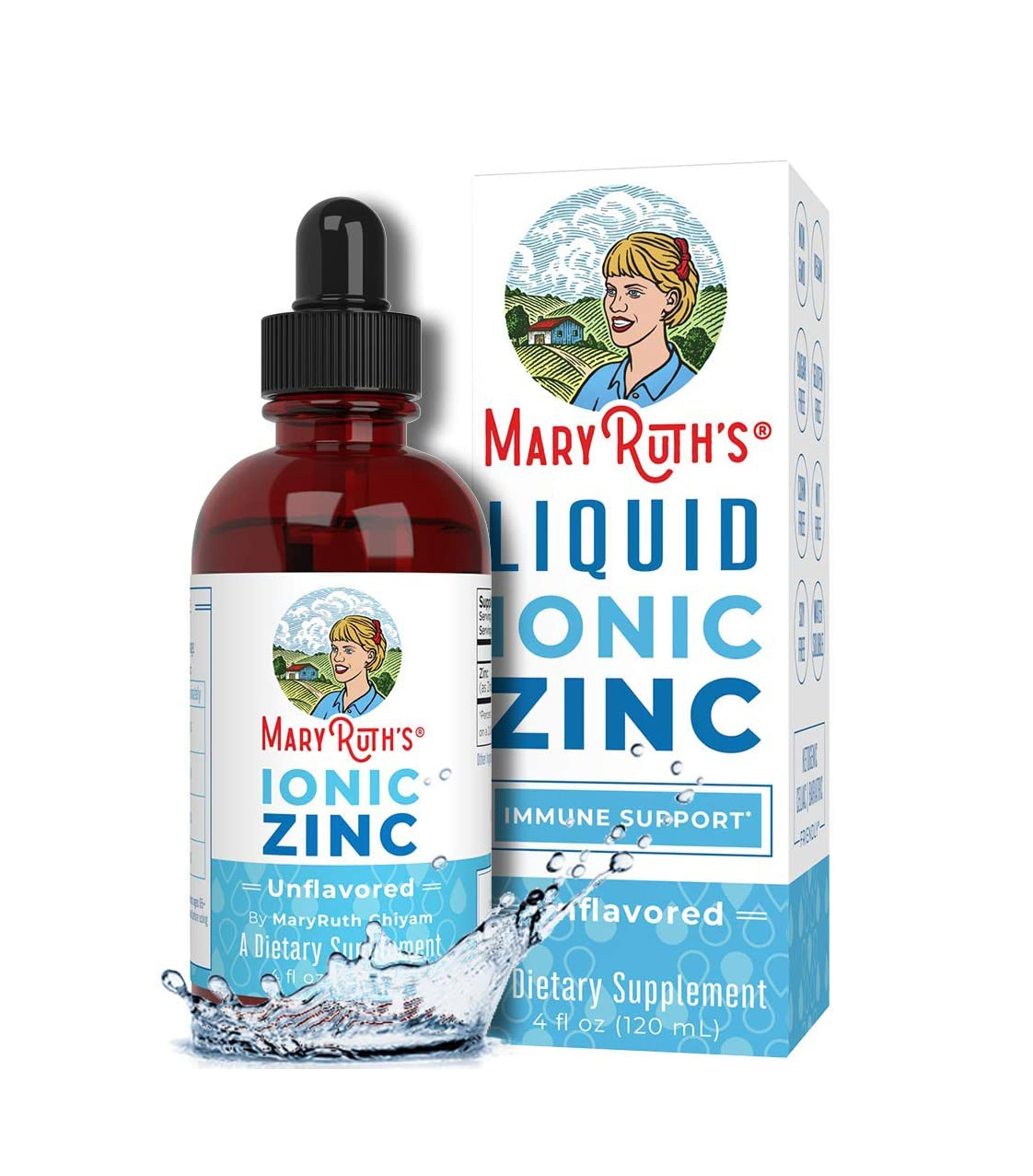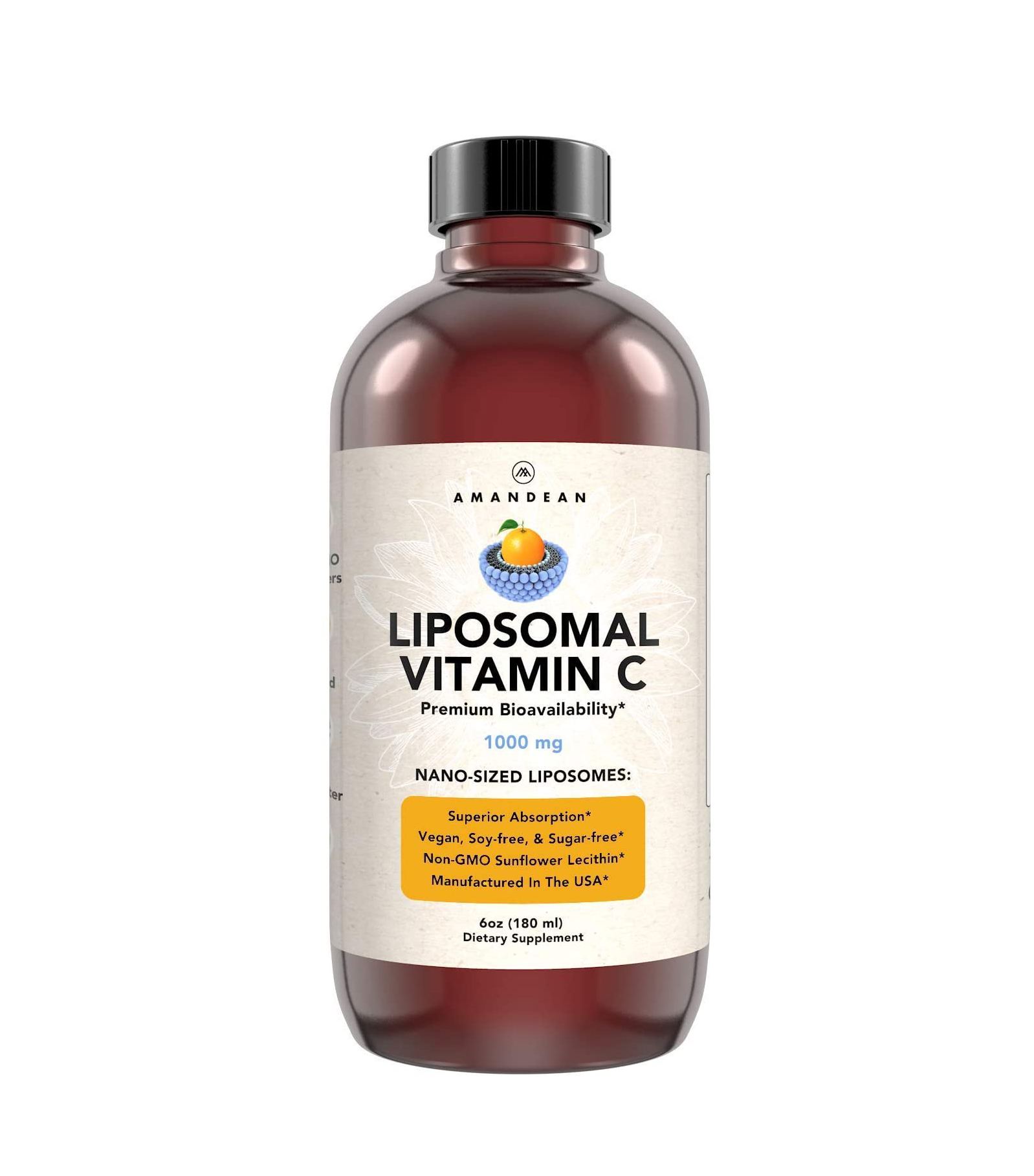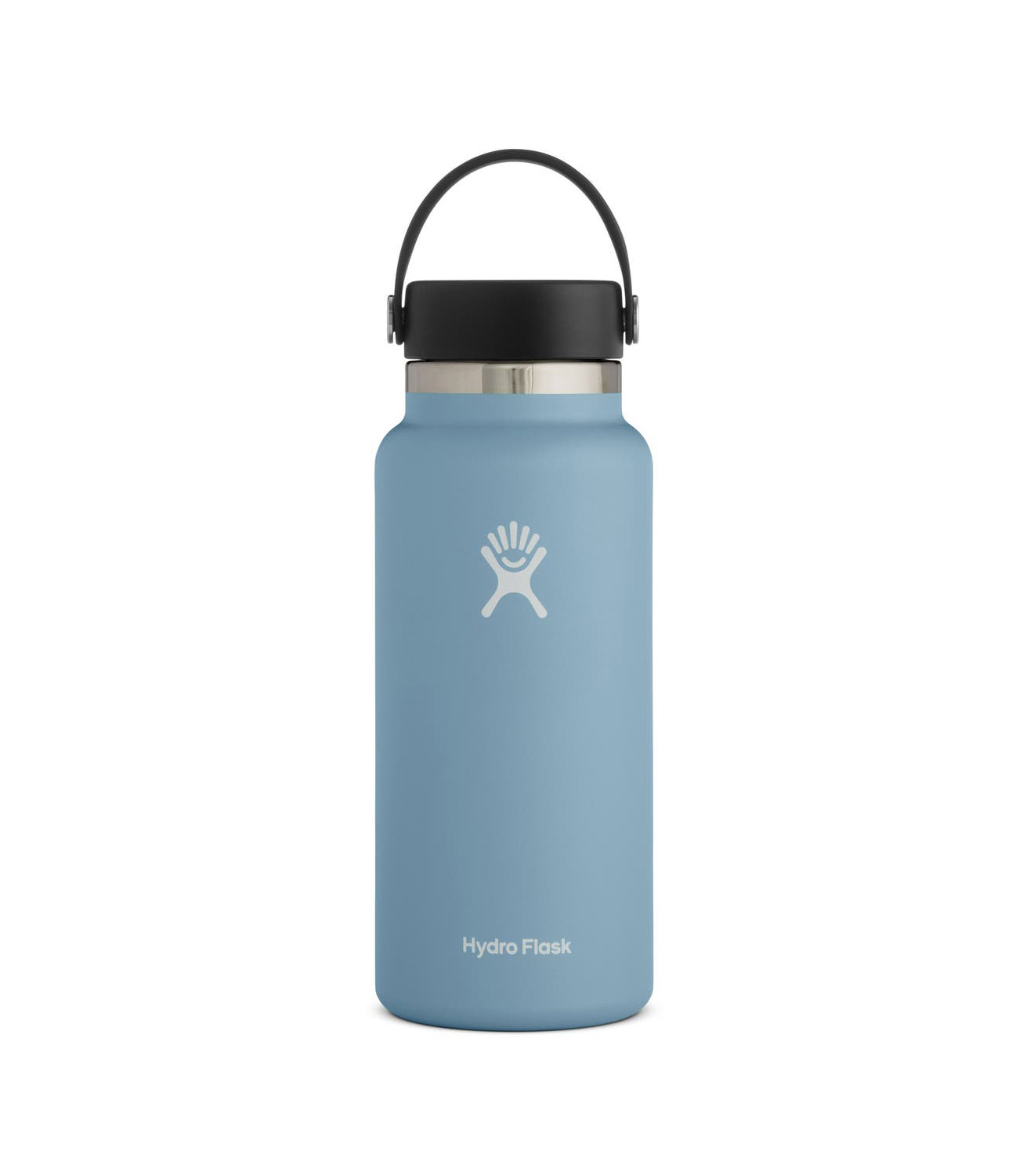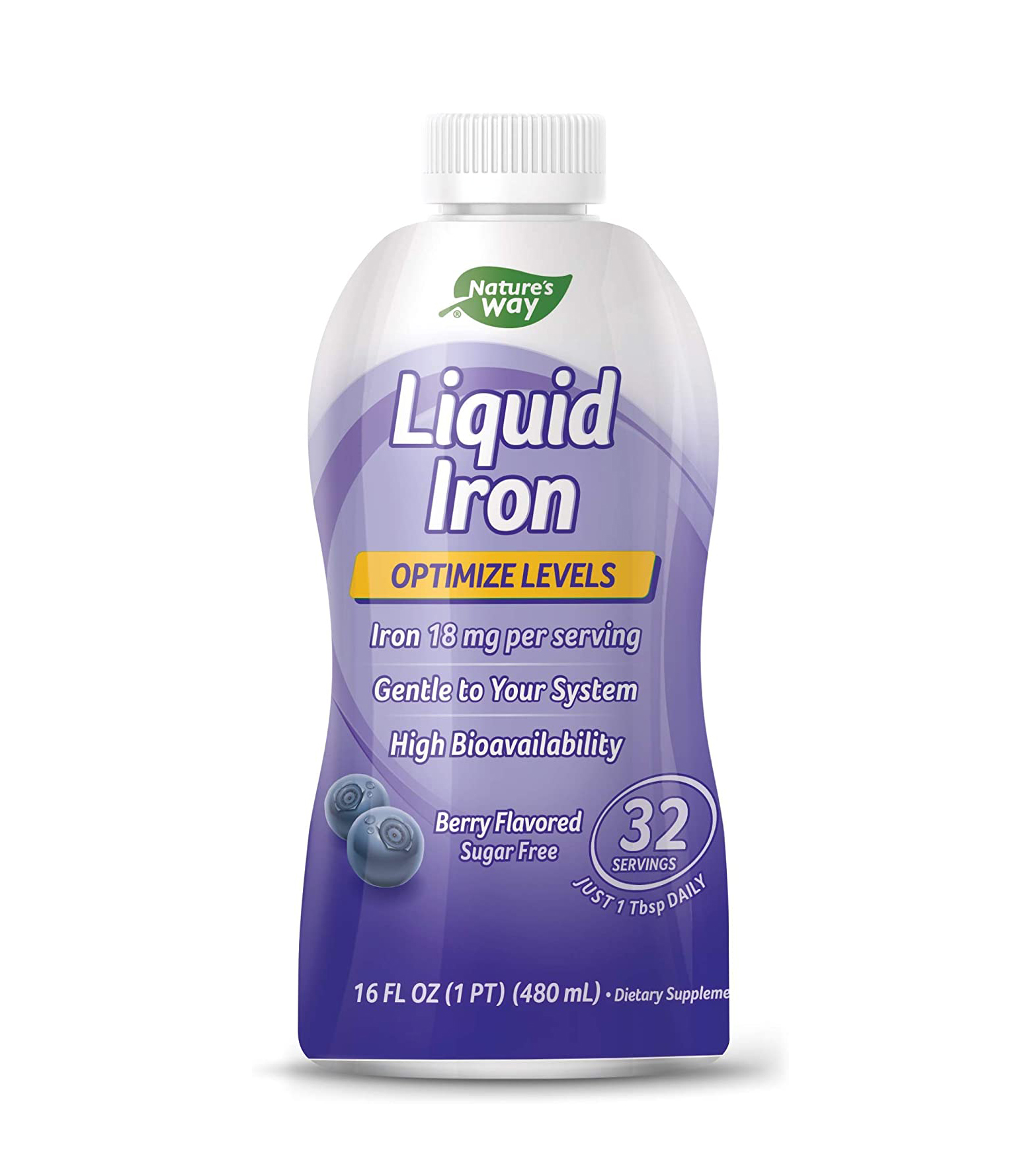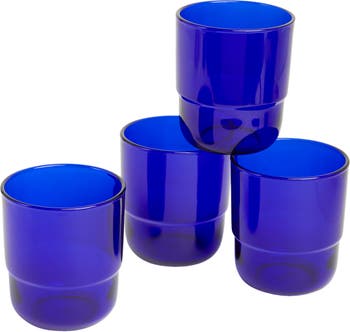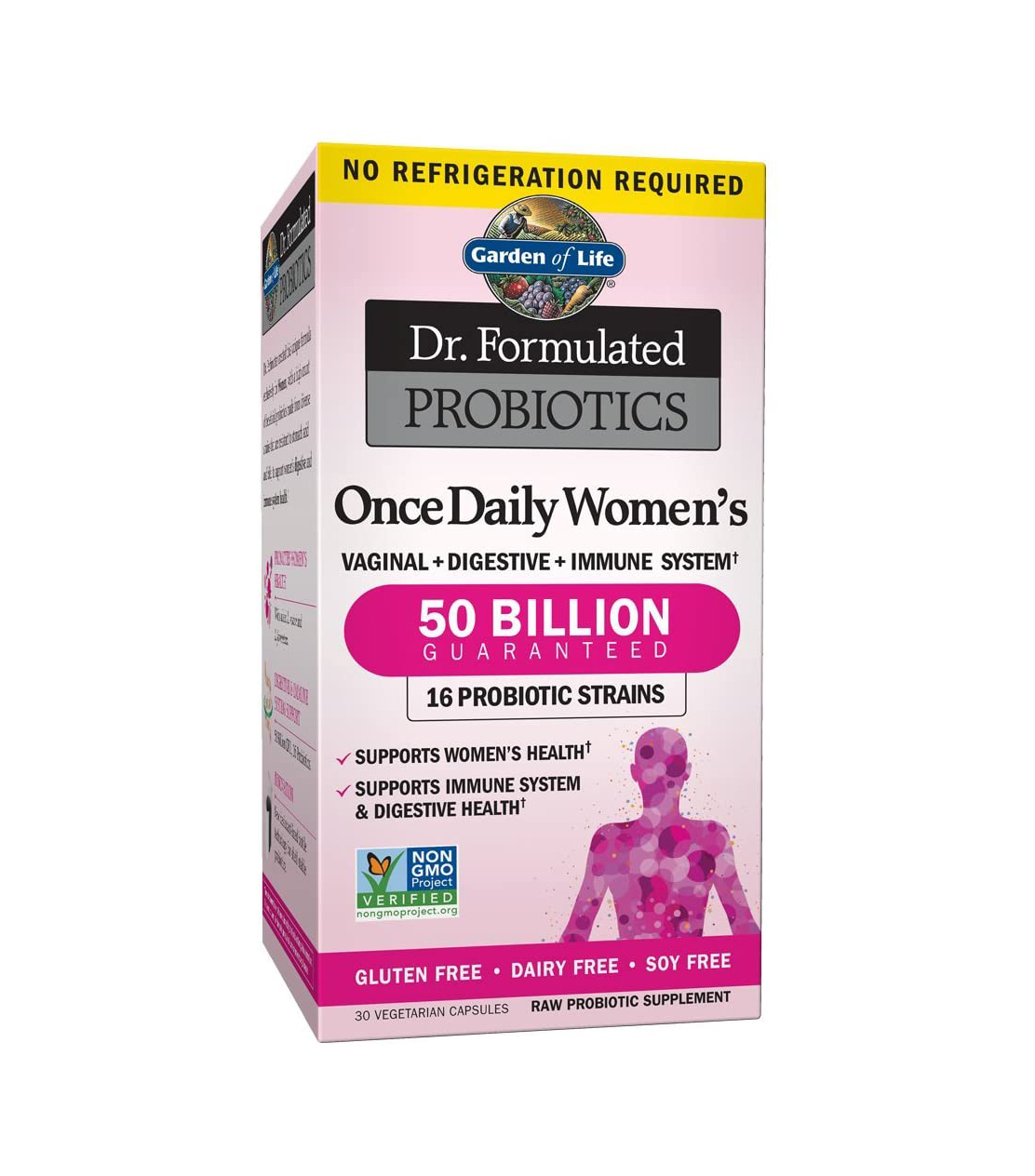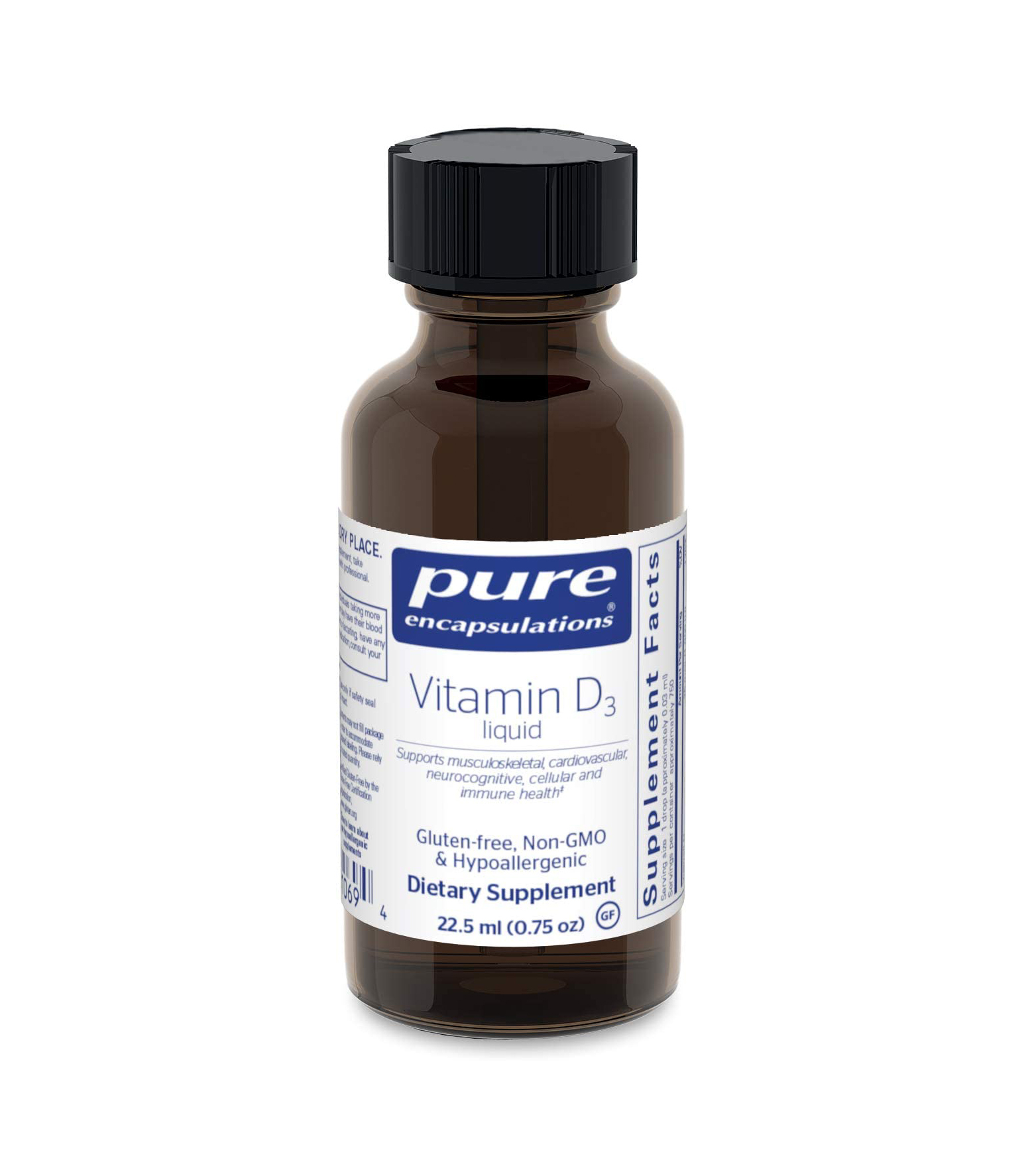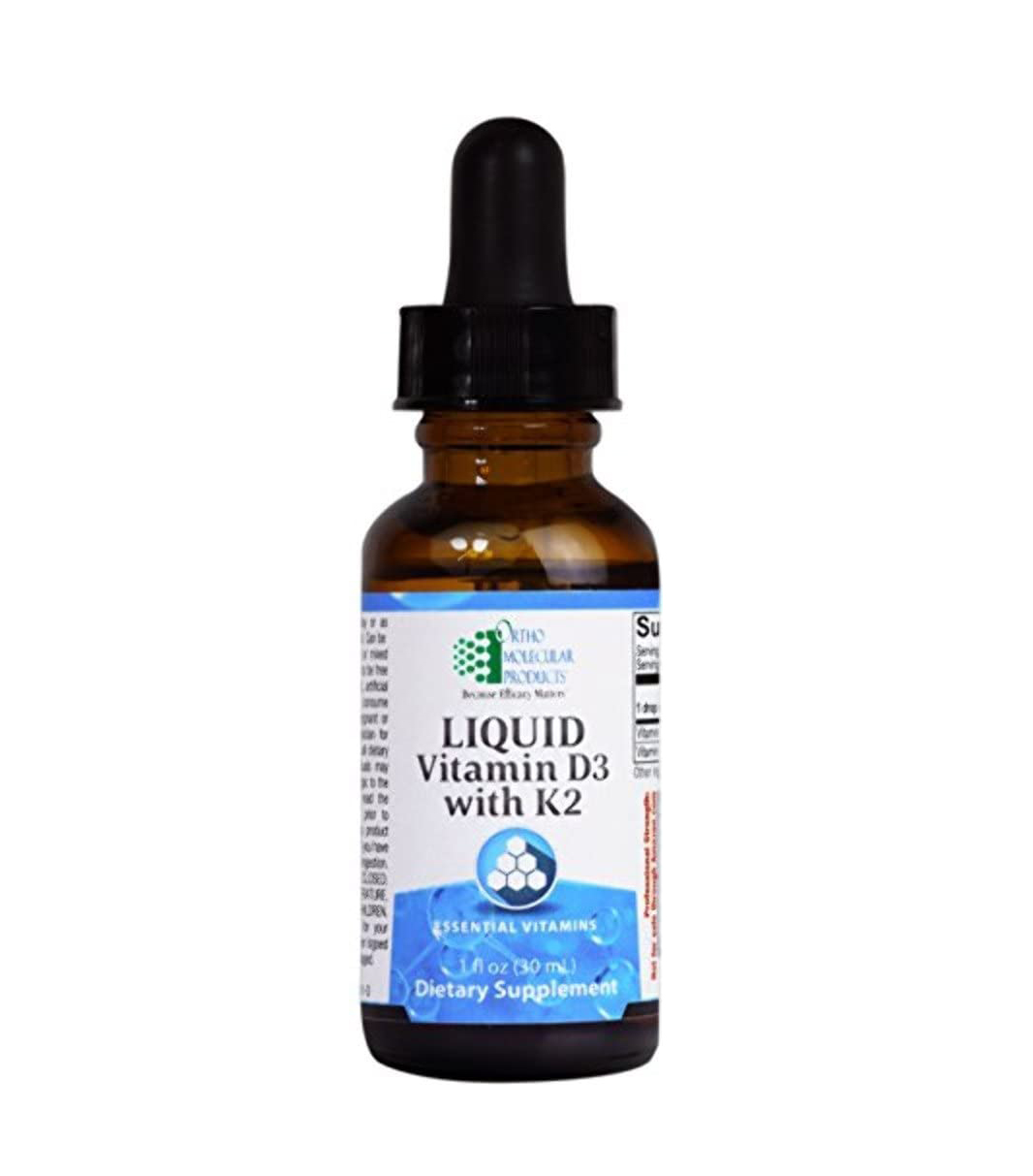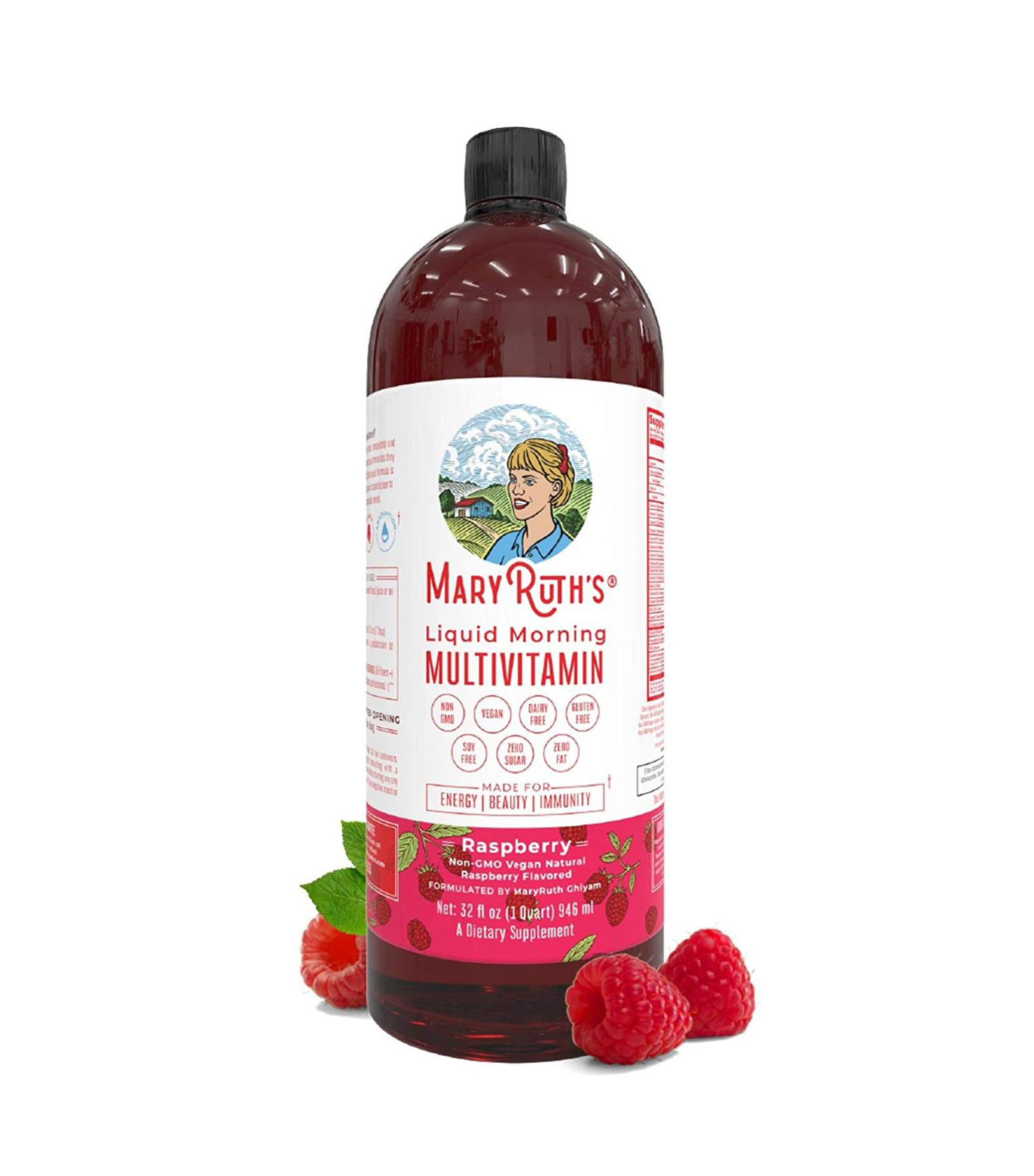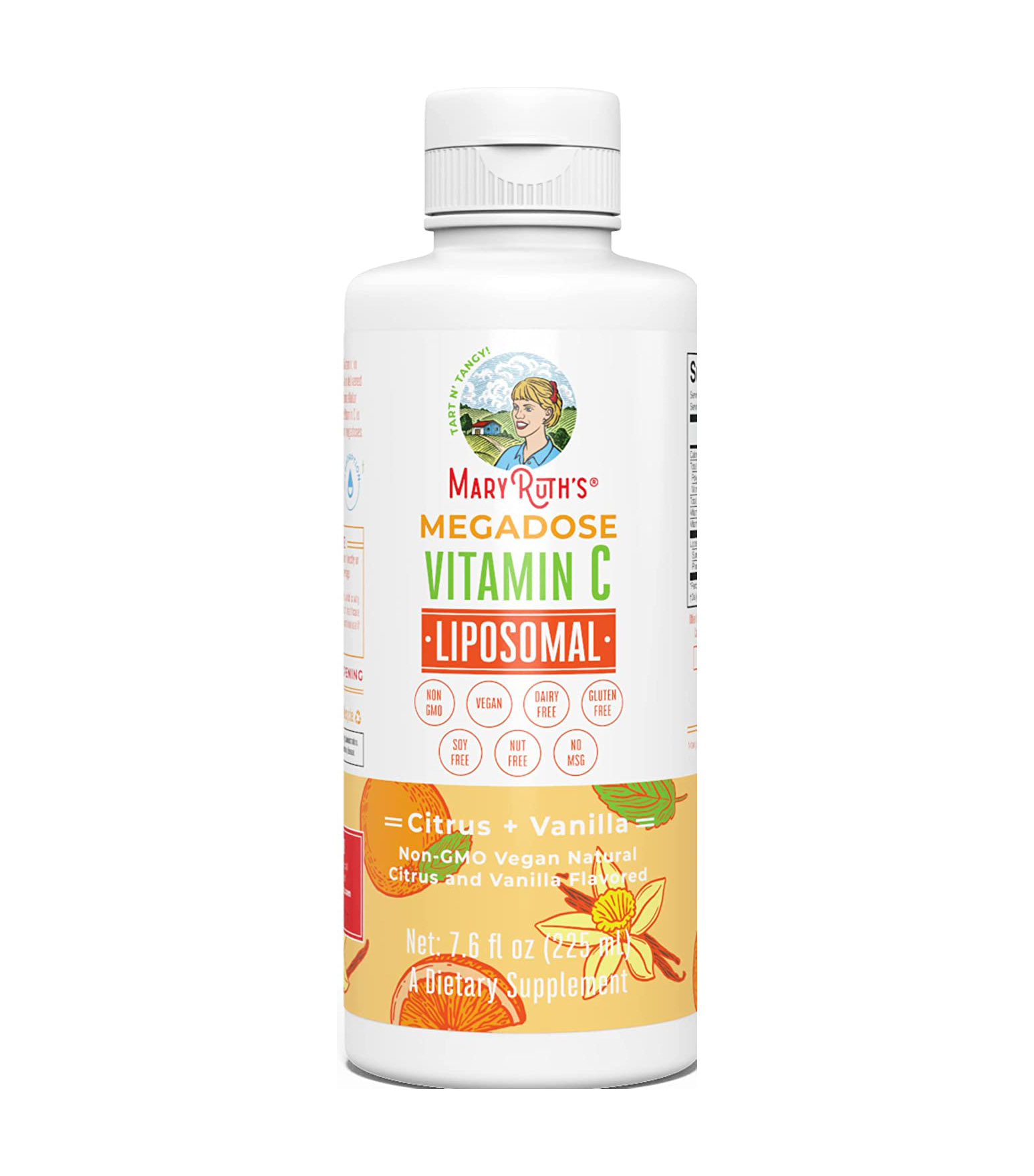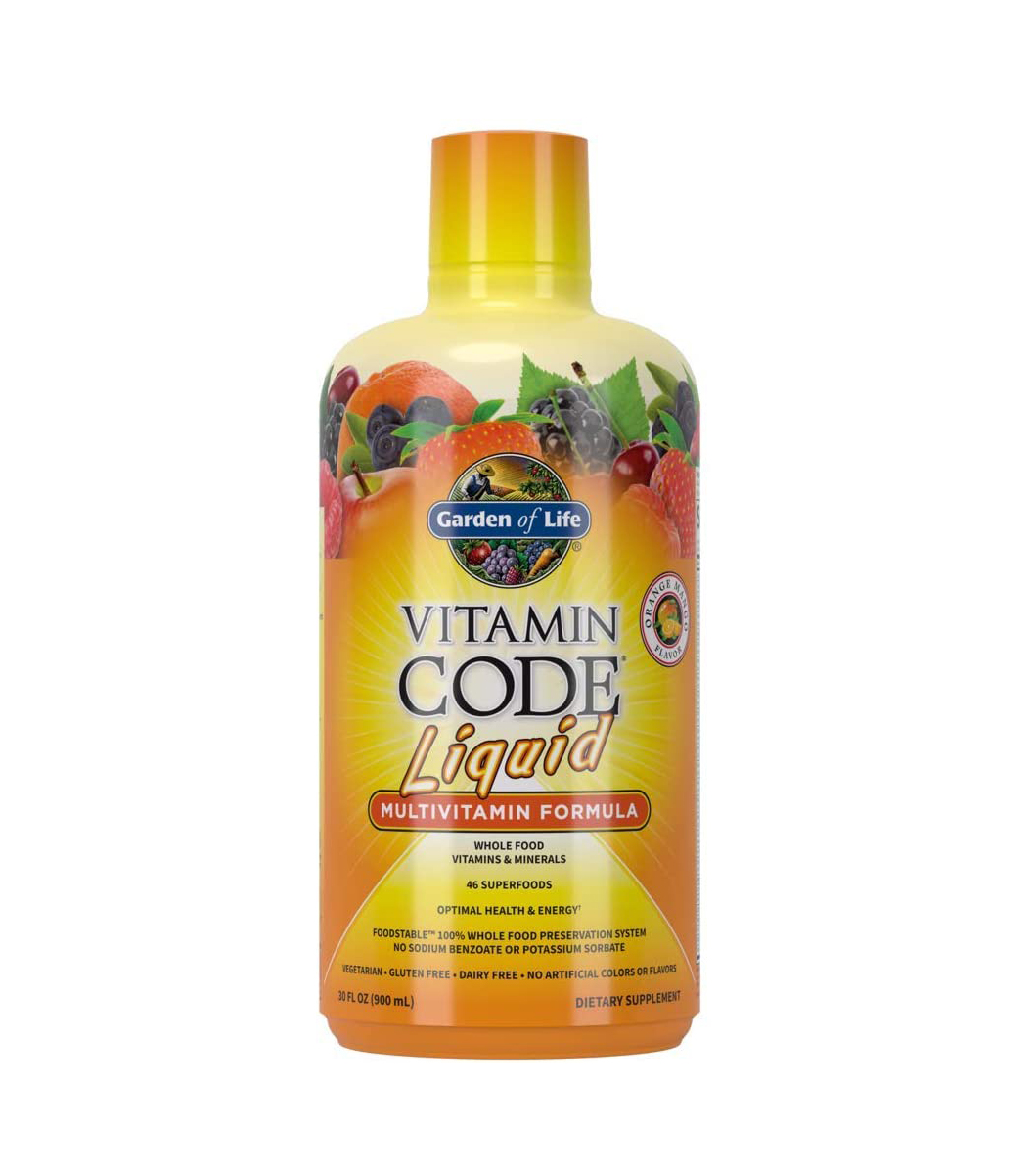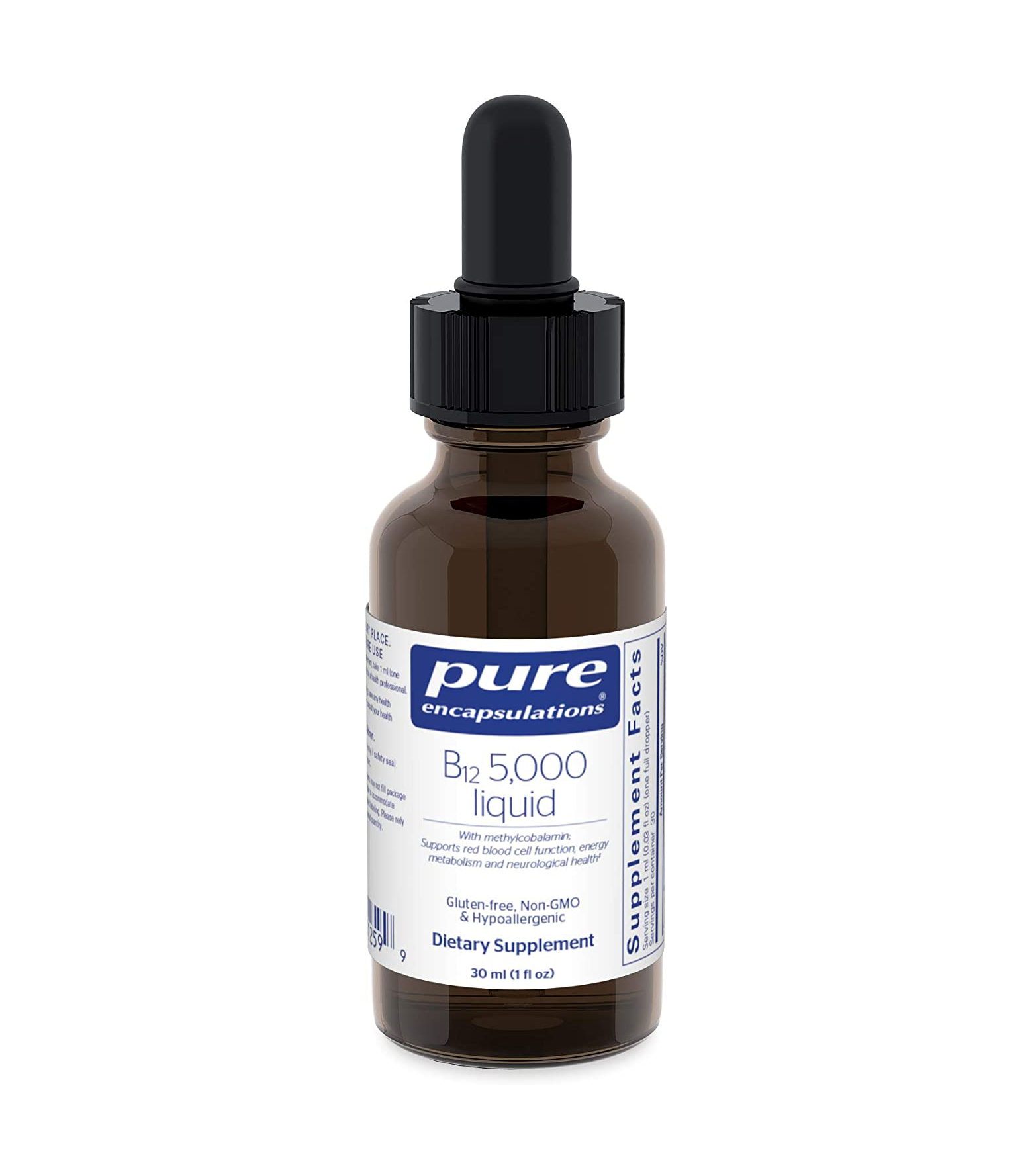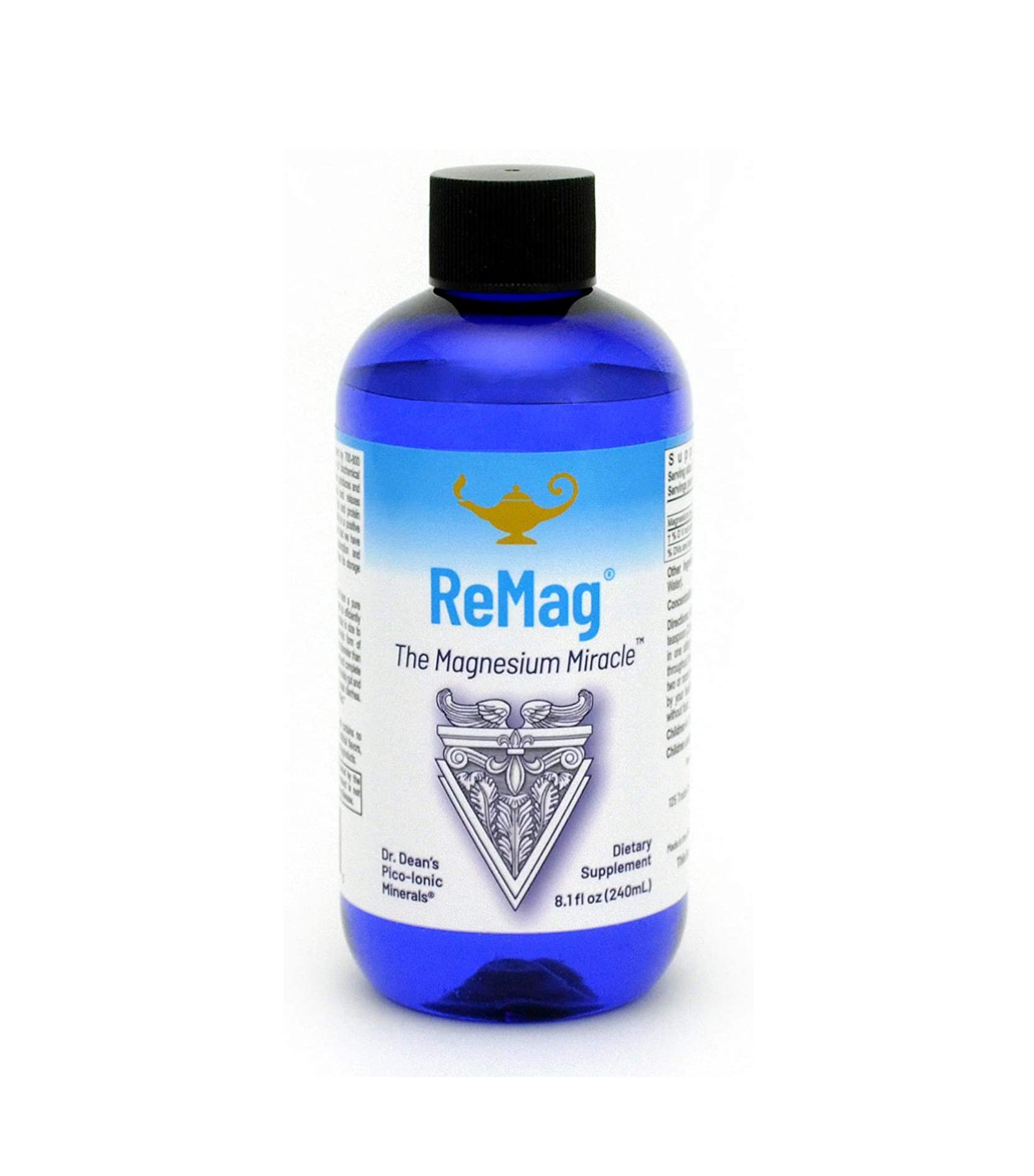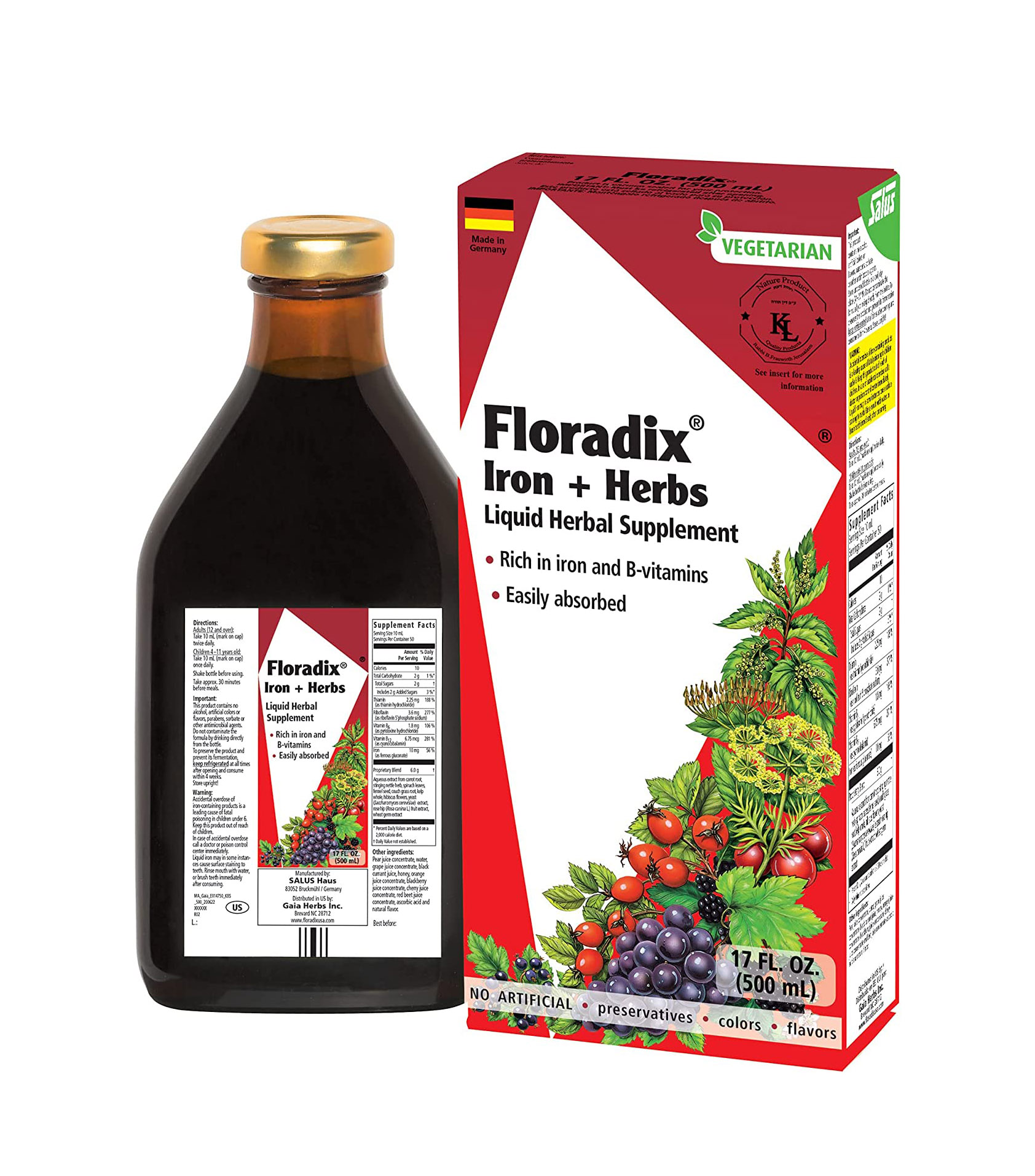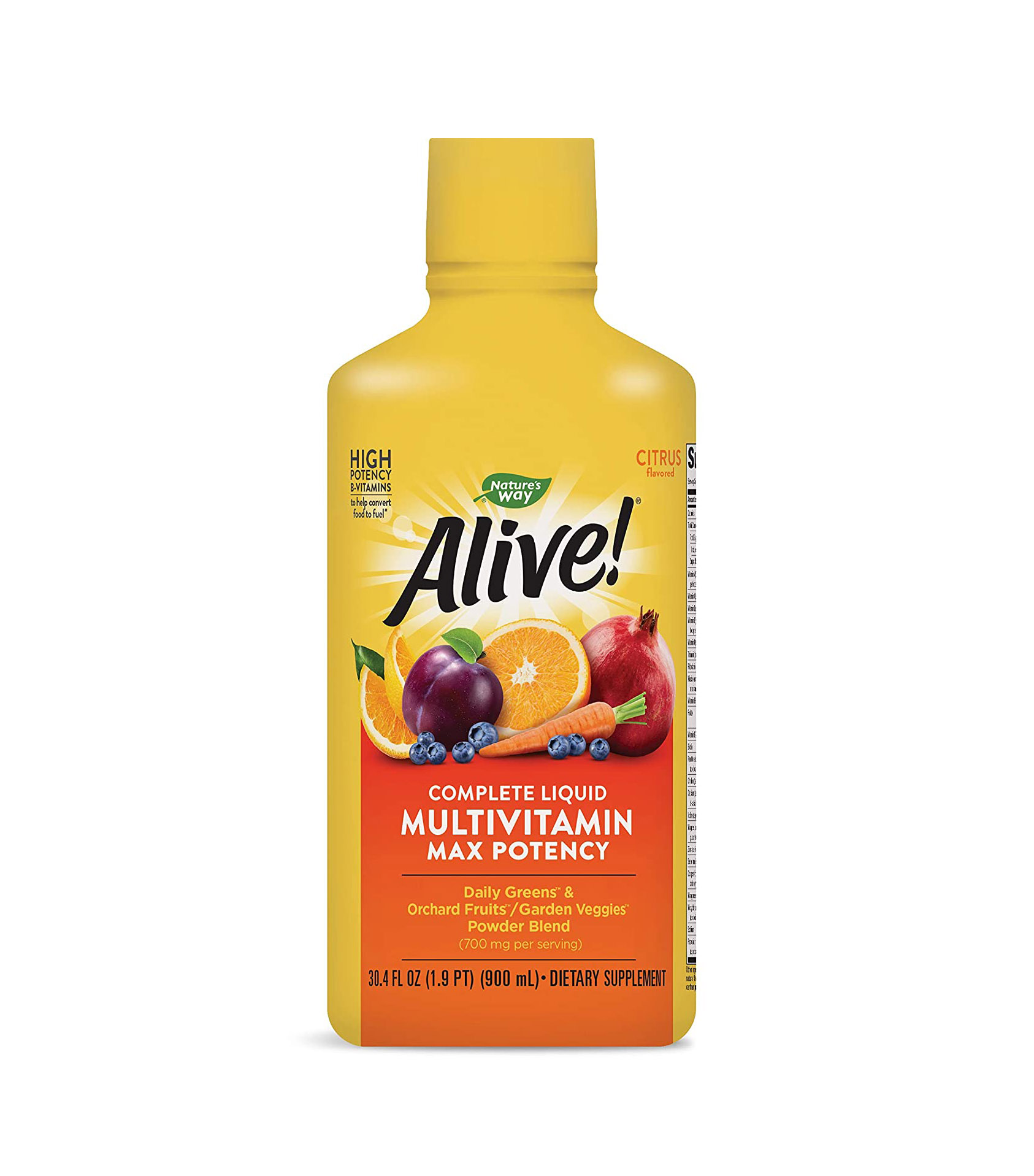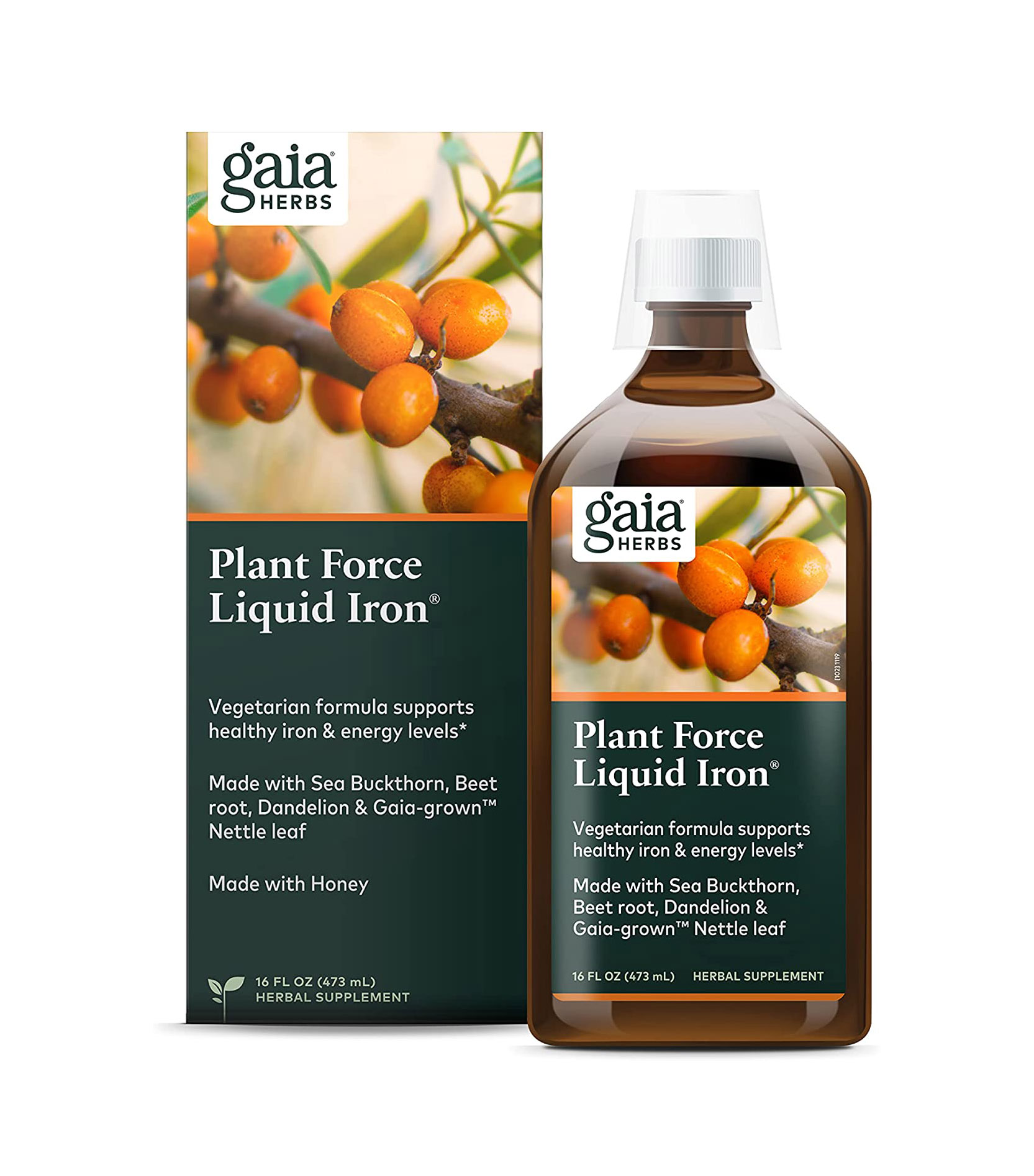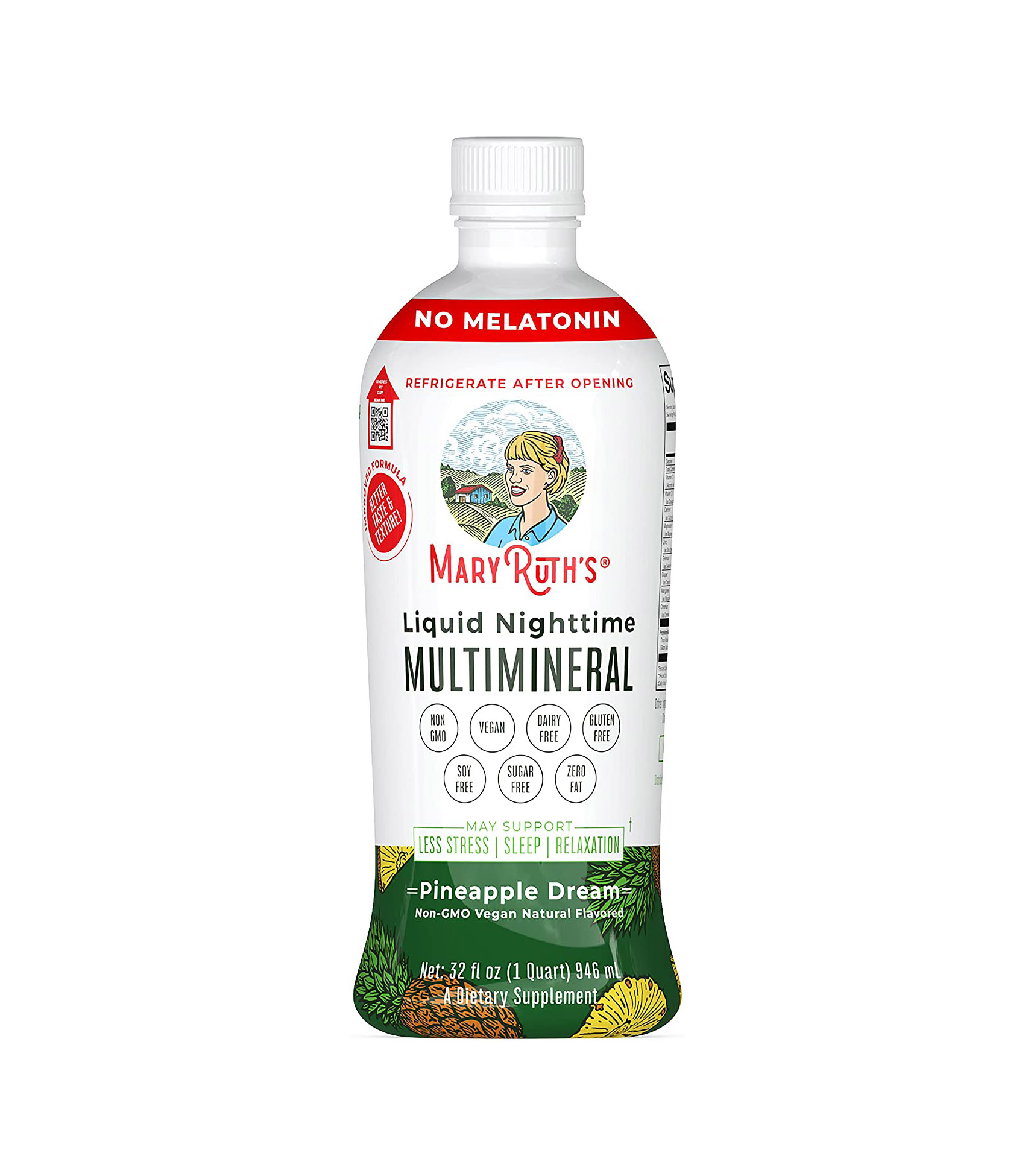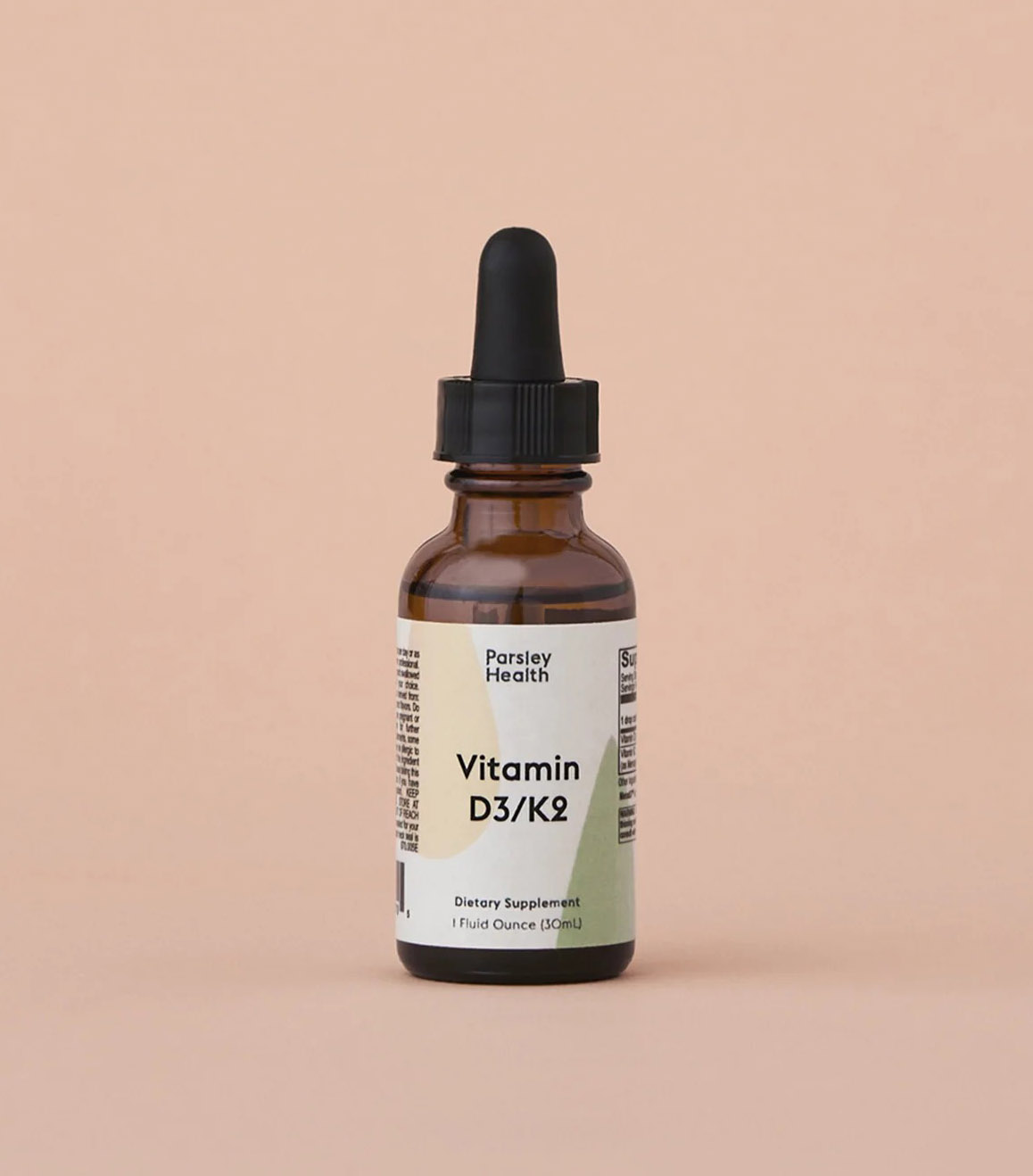9 Things You Need to Know About Liquid Vitamins Before Taking Them

You've got a lot of options when it comes to supplements. Shopping for the best ones for you can be pretty overwhelming. There are different brands, different formulations, etc. Supplements also come in different forms, like capsules or liquids. Because we've talked about capsule supplements extensively before, we're going to be focusing on the best liquid multivitamins and vitamins today.
So what exactly are liquid supplements? Well, the name is pretty self-explanatory. "Liquid vitamins are exactly as they sound, a vitamin in a liquid form, as opposed to a chewable or capsule form," explains Erica Zellner, MS, CNS, LDN, senior health coach at Parsley Health. "Oftentimes, these vitamins are a mixture of the supplemental ingredients, water or oil, flavorings, and preservatives."

Liquid vitamins can be found in different forms, says Serena Poon, CN, CHC, CHN, chef, nutritionist, Reiki master, and founder of the Culinary Alchemy program. She breaks them down for us below.
Tinctures: "These are herbs or vitamins that have been extracted using alcohol or glycerin," she explains. "You can find tinctures that will support an array of health functions such as immune support, hormone balance, and relaxation. Because tinctures are often prepared with an alcohol base, it is important to be cautious when selecting tinctures for children."
Oils: Vitamin D supplements for children and omega-3s are commonly delivered in oils. Poon recommends looking for vitamins that are diluted with organic olive oil or coconut oil.
Syrups: Poon says therapeutic herbs can be delivered in syrup form, like elderberry syrup. Sugar will be an added ingredient in syrups, so look for products with natural sugars like honey.
Liposomals: "This is an innovative technology that surrounds a vitamin with a layer of lipids in order to increase its bioavailability," Poon says. "Researchers have found liposomes to be a very effective vitamin delivery method, and more and more brands are beginning to offer liquid supplements in this format."
Beverages: Waters and fortified milks and shakes can also contain vitamins. "This is the format where you want to be careful about reading your labels," she says. "It is very common to find added sugars, artificial colors, and preservatives in vitamin-enhanced drinks."
When deciding whether to take liquid supplements, it helps to consult your healthcare provider first, like you would with regular supplements. "Just like our diets, one size doesn't fit all when it comes to supplementation," says Charlotte Shron, MS, RD, a registered dietitian at Culina Health. "There is no perfect or standard way of incorporating vitamins into treatment plans. It is an individualized practice that depends on attention to detail, compliance, and consistency for best results. You must take your medical history, current health, and overall lifestyle into consideration in determining which vitamins to take and how."
When shopping for a liquid supplement, do your research and read the labels carefully. You'll want to steer clear of added sugars, artificial colors, and fillers.
Benefits of Liquid Supplements

Better absorption: "Liquid vitamins tend to have a higher absorption rate than pills," Shron explains. "If a patient has a severe deficiency, I would recommend liquid supplementation to maximize absorption as much as possible." If you have a history of digestion issues or malabsorption or have had any type of gastric surgery, you might benefit from taking liquid vitamins because your body doesn't have to break down pills or capsules.
Better compliance: Poon says this is one of the main benefits of liquid vitamins. "They are usually more palatable than their pill or capsule counterparts, so it may be easier for someone with a deficiency to stay compliant with their provider's recommendations," she adds.
Fewer mystery ingredients: "There is a lot of ambiguity around supplementation," Shron explains. "As consumers, we have to look beyond the overpromising health claims and better understand what exactly is in our pills. Most conventionally made supplements contain undesired fillers, coatings, glues, and foreign agents that are labeled as 'other ingredients.' Liquid vitamins tend to have fewer mystery ingredients and contain minimal additives such as cellulose, oils, and preservatives."
Easier to consume: Zellner adds that liquid supplements are advantageous for elderly individuals and children, who may have difficulty swallowing pills.
Disadvantages of Liquid Supplements

Shorter shelf life: Liquid vitamins do have a shorter shelf life than their pill or capsule counterparts. "Some supplements, such as vitamin C, will begin to degrade when exposed to oxygen," Zellner says. "External conditions are not the only limiting factor that can impair the bioactivity level of a liquid supplement. Without the protective layer of a tablet or capsule, the micronutrients are subject to the pH levels of your stomach acid and can be broken down completely before ever reaching the small intestine, where proper absorption can occur."
They're not for certain conditions: Poon says they are generally safe, but you may want to use caution if you have a sensitive stomach or liver damage. This is something you can chat with your doctor about.
More expensive: Shron says that liquid vitamins can cost more than pill or capsule supplements.
You can't delay absorption: "In some situations, the rapid absorption of liquid vitamins may not be an advantage," Zellner says. "For some conditions, having the supplement absorb slowly while being digested is advantageous." Shron adds that you'll want to take probiotics and fish oils in capsule form so they can make it into the small intestine without being digested in the stomach. Melatonin is another one: "It is best to have it time-released so that, after a dose, you don't knock yourself out right away," she adds.
There are side effects: Zellner adds that quick absorption for some supplements might have some unpleasant side effects like cramping or diarrhea. You'll want to take a pill or capsule in those cases.
Best Liquid Vitamins and Multivitamins
Zellner says that choosing between liquid or capsule supplements is largely a matter of personal preference. But in some vitamins, you might get more of an advantage with liquid forms. "For example, the fat-soluble vitamins (A, D, E, K) are often suspended in an oil or other fat source to promote absorption," she adds.
Take a look at some liquid vitamins and multivitamins to try.
"Vitamin D is the most common deficiency I see, especially in women," Shron says. "While vitamin D occurs naturally in certain foods such as eggs and fatty fish, it is not as abundant as other vitamins in our diet and requires fatty foods for absorption. Therefore, if you have been taking your vitamin D on an empty stomach, you might as well not be taking it! I find that many of my clients forget to take vitamins with their food and also do not get outside enough to be able to produce vitamin D when exposed to sunlight. To help correct deficiencies and maximize absorption as much as possible, liquid vitamin D has been a staple in my clients' treatment plans."
Shron also recommends Ortho Molecular's Liquid Vitamin D3 With K2. "Vitamins D and K have synergistic properties that can boost cardiovascular and bone health," she says.
This full-spectrum liquid multivitamin contains vitamins A, B, C, D3, and E, zinc, biotin, and more. It's supposed to provide you with an energy boost while also improving your hair, skin, nails, and digestion.
"One study found greater bioavailability of vitamin C when taken through a liposomal liquid. Though, other forms of liquid vitamin C delivery may not be as effective," Poon says.
Garden of Life's liquid multivitamin is made with raw whole-food vitamins, 45 superfoods, and 35 raw fruits, veggies, and sprouts. It contains vitamins A, C, D3, B, C, and E, plus chromium, magnesium, zinc, and iron.
"B12 requires an acidic environment to absorb properly, which is not always easy to maintain," Shron says. "Many people have diminished stomach acidity without knowing it. Our stomach acid can get reduced by the aging process, stress, other B vitamin deficiencies (more specifically megaloblastic anemia), medications, surgeries, and medical conditions such as atrophic gastritis, to name a few. Since stomach acidity can be inconsistent, we may see dips in our B12 absorption, which is why a sublingual/liquid B12 vitamin may be superior to a conventional pill."
"ConsumerLab also reports that magnesium chloride is better delivered in liquid form to avoid degradation of capsules by moisture during storage," Poon says.
"Anemia is very common and results from a lack of iron supply," Shron says. "Factors that contribute to diminished iron stores are blood loss, diet, and increased needs (think pregnancy). If my patients are anemic or are even borderline, I encourage both foods rich in iron and a liquid supplement to quickly replenish the stores. Sometimes, I ask clients to just take their liquid vitamin during their menstrual cycles to make up for losses, so it does not always have to be an everyday thing. I like the Floradix iron liquid supplement."
This multivitamin has all your daily essentials: 24 vitamins and minerals, 13 greens, 12 organically grown mushrooms, and antioxidants (vitamin C, vitamin E, and beta carotene).
If you're vegetarian, you'll like this iron supplement since it's plant based. It's lightly sweetened with organic honey, elderberry, and acerola.
This formula is made for nighttime use and helps you relax, de-stress, and get to sleep faster. It contains vitamins C and D3, plus antioxidants, minerals, and magnesium.
"This formulation has a few great advantages," Zellner says. "Vitamin D3 is the form of vitamin D that our body naturally makes when we have adequate sun exposure. It supports overall health and plays a role in the proper functioning of muscles, lungs, heart, brain, and immune system. As vitamin D is a fat-soluble vitamin, we formulated ours to sit in an oil base, ensuring your body has the resources it needs to use it most efficiently. We also added vitamin K2 to further boost bioavailability. Vitamin D3 and vitamin K2 work synergistically in the body and need each other to function properly. As a final advantage, as these vitamins are not destroyed by heat, I find it very convenient to put a few drops in my coffee every morning. I never miss a dose because I never forget my morning coffee!"
This article was originally published at an earlier date and has since been updated. Next: No Lie: These Vitamins Will Make Your Hair, Skin, and Nails Flawless
This article is provided for informational purposes only and is not intended to be used in the place of advice of your physician or other medical professionals. You should always consult with your doctor or healthcare provider first with any health-related questions.
Sarah is lifestyle writer and editor with over 10 years of experience covering health and wellness, interior design, food, beauty, and tech. Born and raised in Los Angeles, she attended New York University and lived in New York for 12 years before returning to L.A. in 2019. In addition to her work atBest Knockoff Luxury Clothing , she held editor roles at Apartment Therapy, Real Simple, House Beautiful, Elle Decor, and The Bump (sister site of The Knot). She has a passion for health and wellness, but she especially loves writing about mental health. Her self-care routine consists of five things: a good workout, “me” time on the regular, an intriguing book/podcast/playlist to unwind after a long day, naps, and decorating her home.
